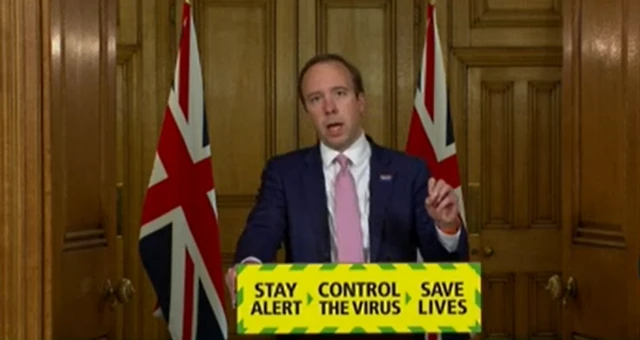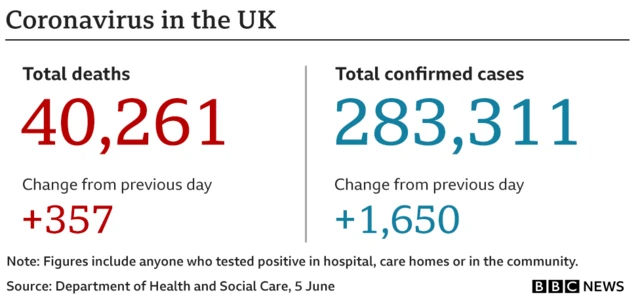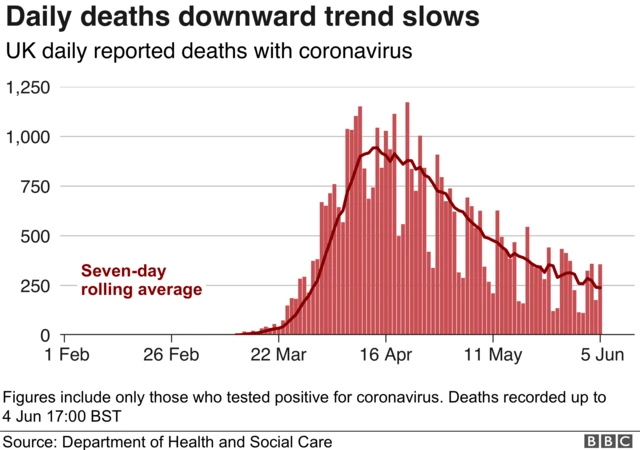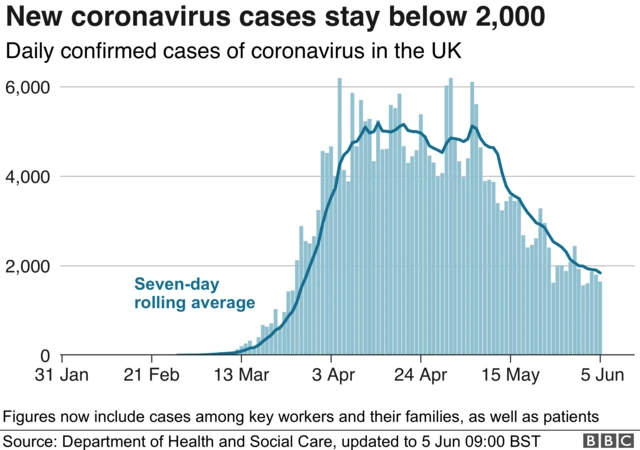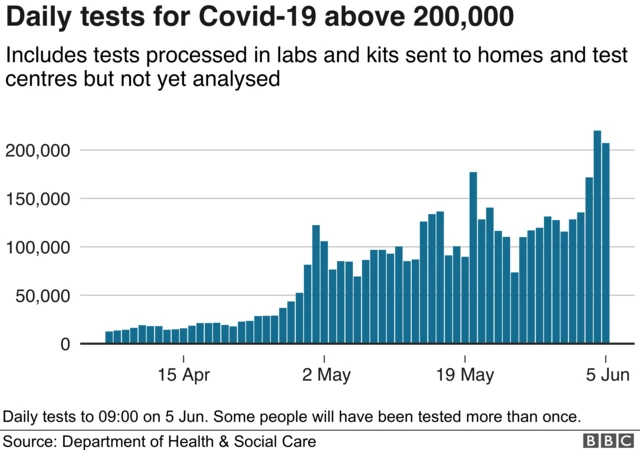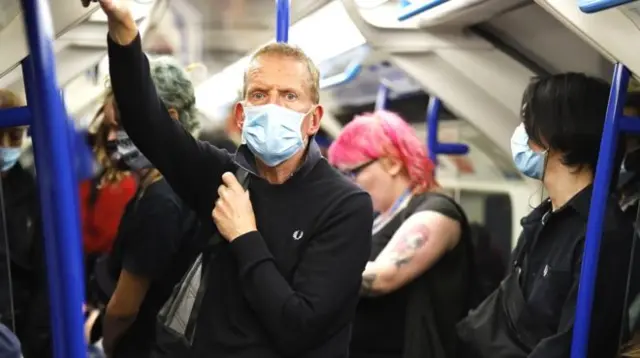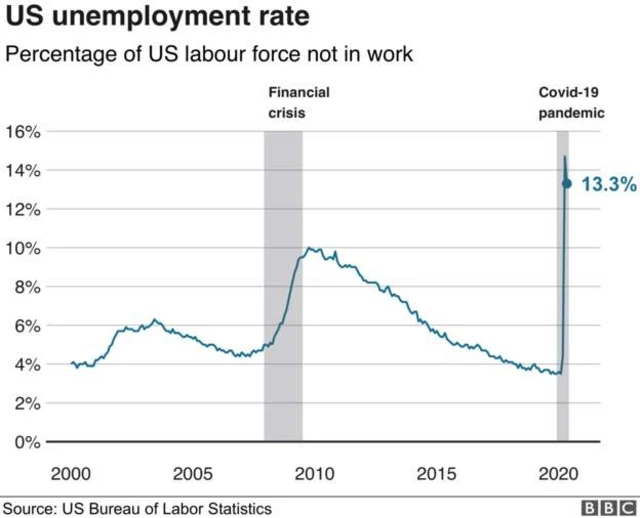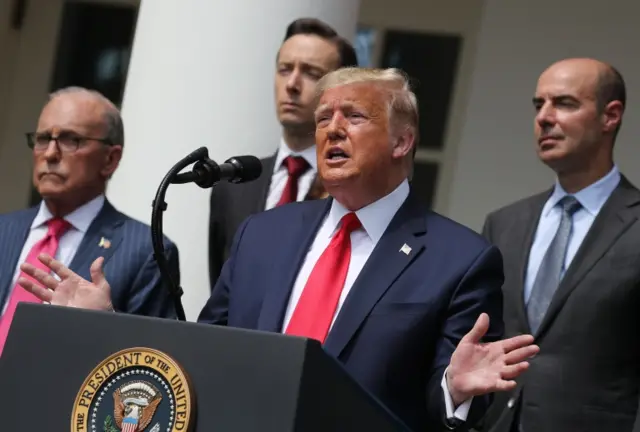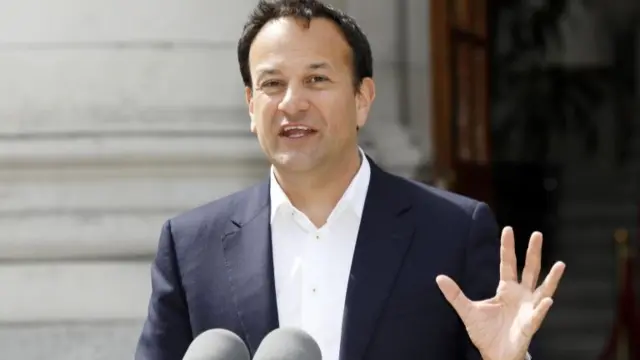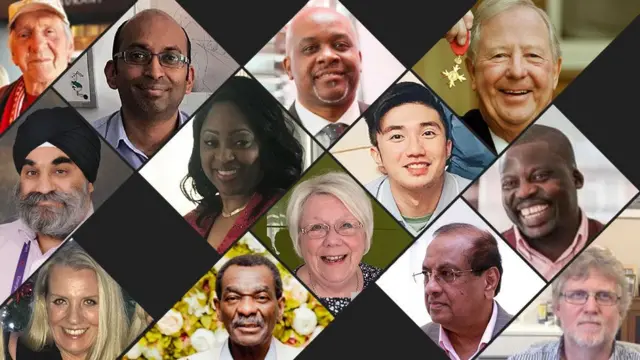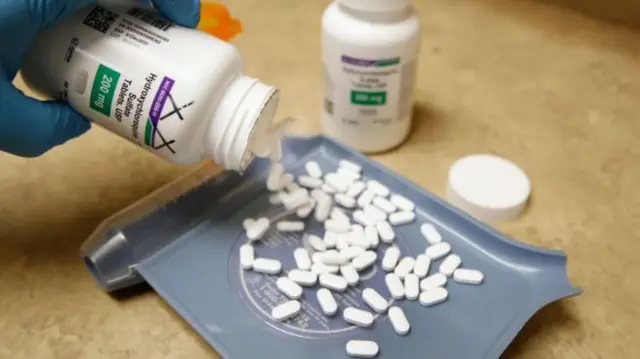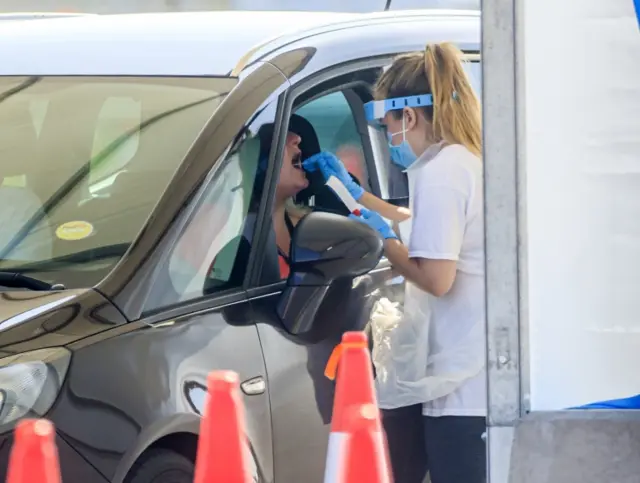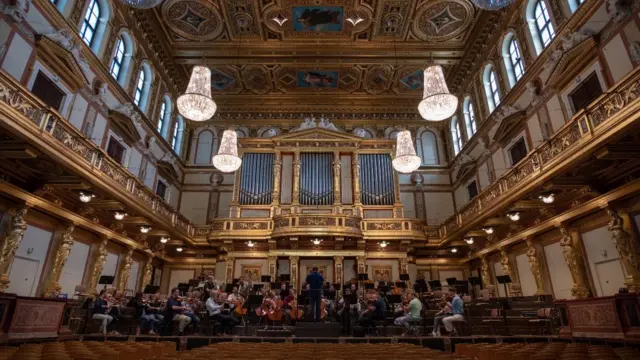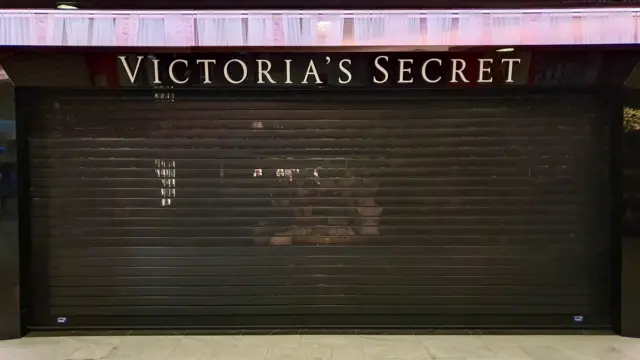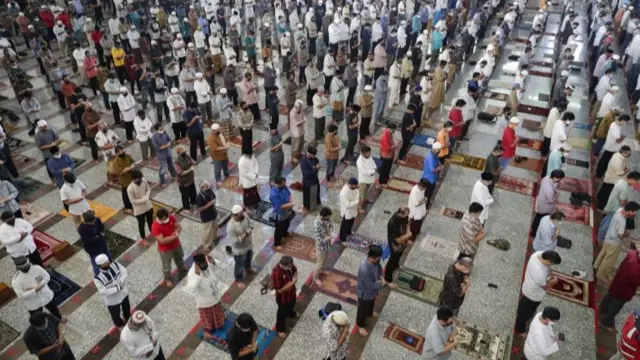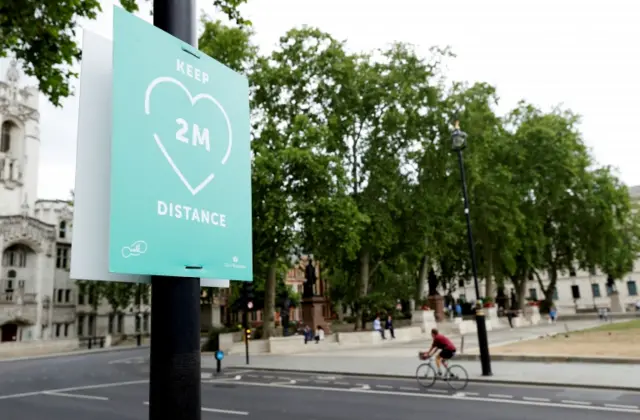Hancock: It's been a time of sorrowpublished at 17:10 BST 5 June 2020
Matt Hancock says the number of people in ventilator beds in hospital has fallen to 571 - from a peak of more than 3,000 on 12 April.
He says the number of people who have died with a positive test for coronavirus in the UK is now more than 40,000.
He says the past few months have been a time of sorrow for many people.
He says the slides show progress but also shows there is "so much more to do".
